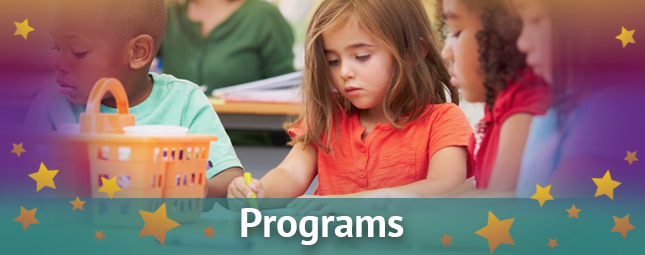
Our Montessori Curriculum
The Young Children, Pre- Primary and Kindergarten Montessori Curriculum
Each Montessori classroom is designed with the Montessori Philosophy of Dr. Maria Montessori in mind. The Montessori Method encourages what Maria saw as the children’s innate ability to ‘absorb’ culture — the natural means that the child’s absorbent mind takes in his environment effortlessly and unconsciously.
The Montessori Prepared Environment is purposeful. Maria Montessori believed that the teacher should prepare the environment and herself with a definite purpose to allow for the spontaneous progression of the child’s development. Thus, the Montessori classroom is not just a place of learning abstract ideas but rather, a place to acquire an education for life. The Montessori Prepared Environment with all of the elements comes together to educate the whole child, not just the academics of the child. The materials teach the child and the teacher is the guide. The teacher is the link between this uniquely prepared environment and the child. There are three main elements that come together to create the Montessori prepared environment: the child, the materials in the prepared environment, and the teacher. We believe that these are the distinct characteristics that stand out when compared to other educational systems.
In a Montessori school, the child is the reason that the prepared environment exists. It is within the environment that the child develops on so many levels. Physically, the child’s development is enhanced and stimulated by the simple freedom of movement. There are no desks assigned for the child to sit at for long periods. Rather, the child moves around from one area to another growing and realizing his own place within the environment. It is by ability, not by age that a child challenges himself and becomes self-reliant, focused and independent. Intellectually, the child’s freedom of choice in his materials leads to a development in his concentration and thereby knowledge in so many areas of life. The environment addresses the children’s needs as they challenge themselves from very basic to very advanced materials.
Practical Life
Practical life exercises are designed to help a child gain a sense of order, to develop coordination and concentration, and to foster independence. Practical life exercises essentially provide the blueprint of life and emphasize building fine motor skills and increasing attention spans associated with daily living activities.
Sensorial
Sensorial experiences appeal to the five senses of sight, touch, smell, taste and sound. Sensorial lessons define shape, color, size, weight, sound, smell and texture. The use of concrete sensorial materials establishes the necessary foundation for the child to later recognize abstract ideas with greater understanding and a more organized mind.
Language
Language development spans all areas of the classroom and is alive with movement. In the Montessori classroom, children learn through phonics as well as sight–reading through labels in the classroom. Individual lessons are based on phonetics, linguistics and sight–reading skills. It is not uncommon for most four year olds, enrolled in our schools, to be reading before their fifth birthday. The children’s interest in reading is never stifled by monotony; rather it is cultivated as their most important key to future learning.
Mathematics
Maria Montessori demonstrated that if children have access to a hands-on approach to mathematics in their early years, it serves as a basis for logical thinking and future acquisition of math skills. The Montessori approach to mathematics is logical, clear and effective. Children work with concrete materials representing abstract concepts. The whole math experience is very kinesthetic and visual. Children learn concepts through natural progression. The classrooms are full of materials for learning the concepts of numeration, addition, subtraction, multiplication, division and problem solving.
Cultural Studies/ Arts & Crafts/ Computer Applications
Geography, History, Biology, Botany, Zoology, Social Sciences, Horticulture and World Cultures are presented to the children in enriching and exciting ways. Children study about the world through maps and globes. The objective is to increase their awareness of our planet. The Montessori Method offers the children a concrete presentation of history by letting them work with timelines.
Art, integrated into curriculum, enhances the creativity of the child. Our instructors design meaningful and inspirational lessons for the Pre-Primary children to gain awareness and an appreciation for the arts. Art is an important form of self-expression. It develops hand-eye coordination, imagination, individuality and aesthetic appreciation.
Foreign Language
The curriculum is designed to give the children a working knowledge of an additional language. The program is designed to be colloquial, interesting and useful. Students learn shapes, colors and the fundamentals of the language.
Music and Movement
Physical growth and muscle development are precursors to intellectual development. The Montessori philosophy brings together music, dance and song. An early appreciation of music and movement will contribute to the overall development of the child.
Our school campuses have wonderful playgrounds. Supervised outdoor play takes place during recess, lunch, and after-school hours. The campuses also house an outdoor patio with area allocated for a butterfly, vegetable, and herb gardens.